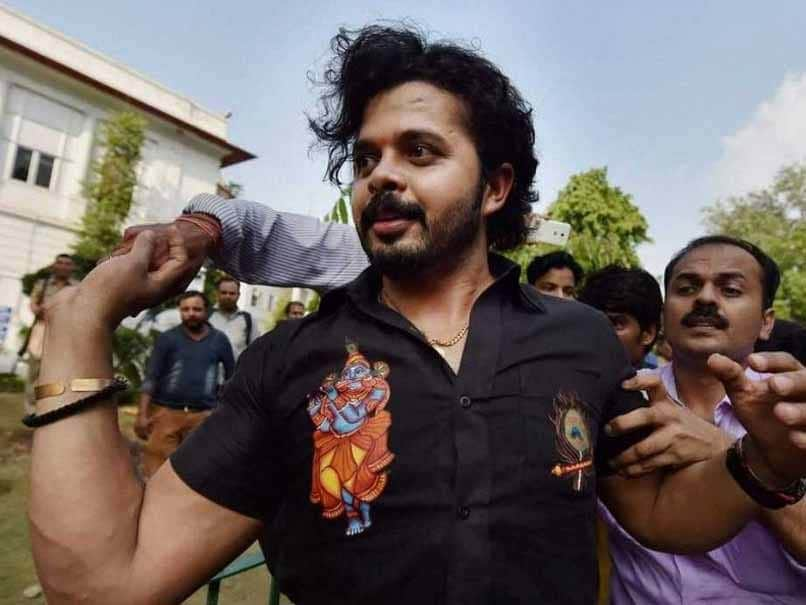No Revocation Of Life Ban: BCCI Tells S Sreesanth
All the 36 accused, including S Sreesanth, Ankeet Chavan and Ajit Chandila were discharged in the IPL-6 spot-fixing case by Patiala House Court in July 2015. The BCCI, however, had refused to alter its disciplinary decision.
- Press Trust of India
- Updated: April 18, 2017 09:12 pm IST

Highlights
-
Sreesanth's plea for a review of his life ban rejected by BCCI
-
BCCI has informed Sreesanth of its decision in a letter
-
BCCI says it will not compromise on its zero tolerance policy
Tainted pacer S Sreesanth's plea for a review of his life ban has been "summarily rejected" by the Board of Control for Cricket in India (BCCI), which says it will not compromise on its zero tolerance policy towards corruption. The BCCI has informed Sreesanth of its decision in a letter. The letter was sent by BCCI CEO Rahul Johri after the cricketer wrote to the COA appealing for revocation of his ban in the 2013 spot-fixing scandal. It was made clear that Sreesanth, who intended to play club cricket in the United Kingdom, won't be allowed and the BCCI has now shut the case.
"The BCCI has informed him that his life ban stays and he won't be allowed to play any form of competitive cricket. He had also appealed in a local court in Kerala and our legal counsel will be replying," a senior BCCI official told PTI on Tuesday.
"The BCCI has always maintained zero tolerance towards corrupt practices. No court has exonerated Sreesanth of fixing charges. It was charges of his links with Underworld that were dismissed by the lower court," the source said.
Yesterday, the BCCI submitted a counter-affidavit regarding this issue before Kerala High Court in response to a petition filed by Sreesanth. The pacer had challenged the continuation of the life ban imposed on him by the BCCI despite being exonerated by a Delhi court from the charges of match-fixing against him.
In a affidavit, BCCI said "the decision of the Sessions Court to acquit the petitioner from criminal charges has no impact whatsoever on the decision of the internal disciplinary committee of the BCCI to ban the petitioner from playing cricket tournaments organized by the BCCI and/or its affiliates."
The Board said the question before the Sessions Court was whether the petitioner (and other accused) was guilty of penal consequences under relevant criminal statutes.
On the other hand, the question before the BCCI Disciplinary Committee was whether the petitioner was guilty of match fixing, corruption and gambling and violation of the internal disciplinary rules of the BCCI, the Board said.
The standard of proof required under a penal statute is much higher than the proof required for a disciplinary inquiry, it said.
Therefore, on an appreciation of the same evidence, one may not be guilty of criminal consequences but can be found guilty for violating the internal disciplinary rules of an organization, it said.
Admitting the petition filed by Sreesanth seeking a direction to the BCCI to allow him play for a Scottish club, the High Court had directed the Union Government and the BCCI to file their counter affidavits.
All the 36 accused, including Sreesanth, Ankeet Chavan and Ajit Chandila were discharged in the IPL-6 spot-fixing case by Patiala House Court in July 2015. The BCCI, however, had refused to alter its disciplinary decision.
